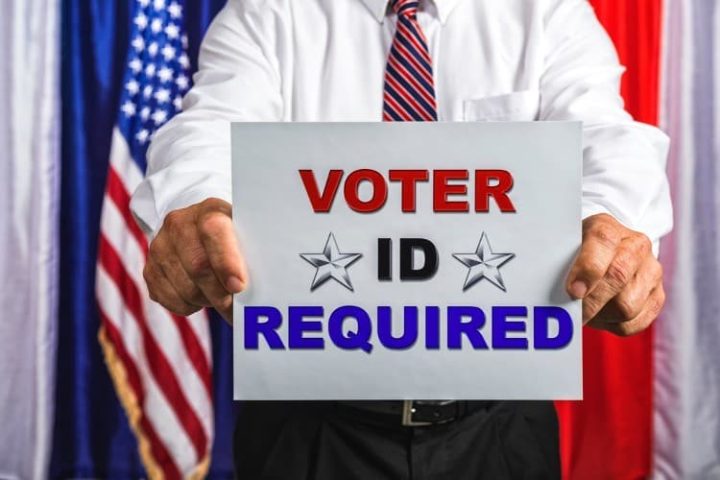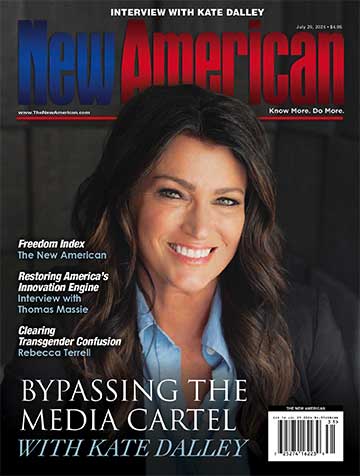
In a narrow vote on Wednesday, House Republicans, joined by a small number of Democrats, approved H.R. 8281, the Safeguard American Voter Eligibility Act, or SAVE Act. The act is aimed at expanding proof-of-citizenship requirements for federal elections and enforcing voter roll purge mandates on states. The legislation, introduced by Rep. Chip Roy (R-Texas) and championed by former President Donald Trump, passed with a 221-198 vote, garnering support from five Democrats.
The bill now heads to the Senate, where it faces a bleak future due to strong opposition from Democrats. President Biden has pledged to veto the measure should it reach his desk.
Key Provisions
The SAVE Act amends the National Voter Registration Act of 1993 (NVRA) by requiring individuals to present proof of United States citizenship when registering to vote in federal elections, which supporters argue is necessary to prevent illegal voting by noncitizens.
The summary of the bill reads:
This bill requires individuals to provide documentary proof of U.S. citizenship in order to register to vote in federal elections.
Specifically, the bill prohibits states from accepting and processing an application to register to vote in a federal election unless the applicant presents documentary proof of U.S. citizenship.
Under the legislation, the term “documentary proof of United States citizenship” for voter registration includes a REAL ID-compliant identification that indicates U.S. citizenship, a valid U.S. passport, a military ID along with a service record, a government-issued photo ID showing a U.S. birthplace, or a government-issued photo ID that does not show birthplace or citizenship accompanied by a valid secondary document.
The bill also obligates states to remove noncitizens from their official lists of eligible voters.
Other provisions include allowing individuals to sue election officials who register voters for federal elections without proper proof of U.S. citizenship. Additionally, the bill sets criminal penalties for officials who register voters without this required documentation. The Election Assistance Commission is also required to issue guidance to state election officials within 10 days to help implement these new rules.
Support
Speaker Mike Johnson (R-La.) emphasized the importance of the legislation on the House floor, citing instances of noncitizens voting despite existing laws against it.
In a statement on the bill’s passage, he said:
Over the past four years, Joe Biden has welcomed millions upon millions of illegals into the country knowing that noncitizens only have to check a box to vote in a federal election. We have long known this was an intentional effort to turn them into voters, and now the American people know where every member of Congress stands on this critically important issue.
Roy criticized progressive Democrats, accusing them of undermining American citizenship through policies such as open borders, disregard for law enforcement, and attacks on the nation’s foundational principles. In a statement, he argued that these actions are eroding the very fabric that unites the country:
We will only be able to keep this republic as a republic as long as our citizenship as Americans remains meaningful. That’s why I introduced the SAVE Act in the first place, and it’s why the People’s House passed it today.
Johnson positioned the legislation as a show of unity with the right flank of his party and as a gesture of support for Trump. The former president urged GOP lawmakers to pass the bill via a Truth Social post on Tuesday:
[The House Republicans] should pass the SAVE ACT immediately to stop illegals from voting in our elections.
Trump’s endorsement highlights the bill’s alignment with his ongoing and well-substantiated allegations of widespread voter fraud, one of the central themes in his political rhetoric.
Opposition
Critics, however, argue that the SAVE Act’s provisions are redundant and more likely to disenfranchise Americans than prevent illegal voting. The Brennan Center for Justice, for instance, strongly criticized the bill. First, they claim, only 30 suspected cases of noncitizen voting out of 23.5 million votes occurred in the 2016 general election, highlighting the rarity of such incidents. Then, they argue, according to their research, over 9 percent of American citizens of voting age, or 21.3 million people, do not have proof of citizenship readily available. “And at least 3.8 million don’t have these documents at all, often because they were lost, destroyed, or stolen,” they added.
The White House echoed that sentiment in a statement expressing its “strong opposition” to the bill:
This bill would do nothing to safeguard our elections, but it would make it much harder for all eligible Americans to register to vote and increase the risk that eligible voters are purged from voter rolls. The evidence is clear that the current laws to prevent noncitizen voting are working as intended—it is extraordinarily rare for noncitizens to break the law by voting in Federal elections.
The Illegal Immigration Reform and Immigrant Responsibility Act of 1996 explicitly prohibits noncitizens from voting in federal elections. However, numerous states have relaxed their laws, opening the floodgates for fraud and manipulation. Noncitizens are already allowed to vote in some local elections, including in Washington, D.C.
Plus, as Roy pointed out in a post on X on Monday:
Federal law currently PROHIBITS states from verifying citizenship status during registration for federal elections. The SAVE Act requires proof of citizenship to register and would remove non-citizens from voter rolls. What are Democrats fearful of? This is basic stuff, you would think…
Looking Ahead
As the SAVE Act moves to the Senate, its future remains uncertain. While it has energized a segment of the Republican base, strong opposition from Democrats and the presidential veto threat create significant hurdles for the legislation. The debate over the SAVE Act underscores the broader national conversation about voting rights, election integrity, and the balance between preventing fraud and ensuring access to the ballot box.
For now, the bill serves as a flashpoint in the ongoing partisan battle over the future of American elections, reflecting deep divisions in the country’s political landscape.
Related Article:
GOP Bills Would Require ID to Vote in Fed Elections, Stop Counting Illegals in Census




